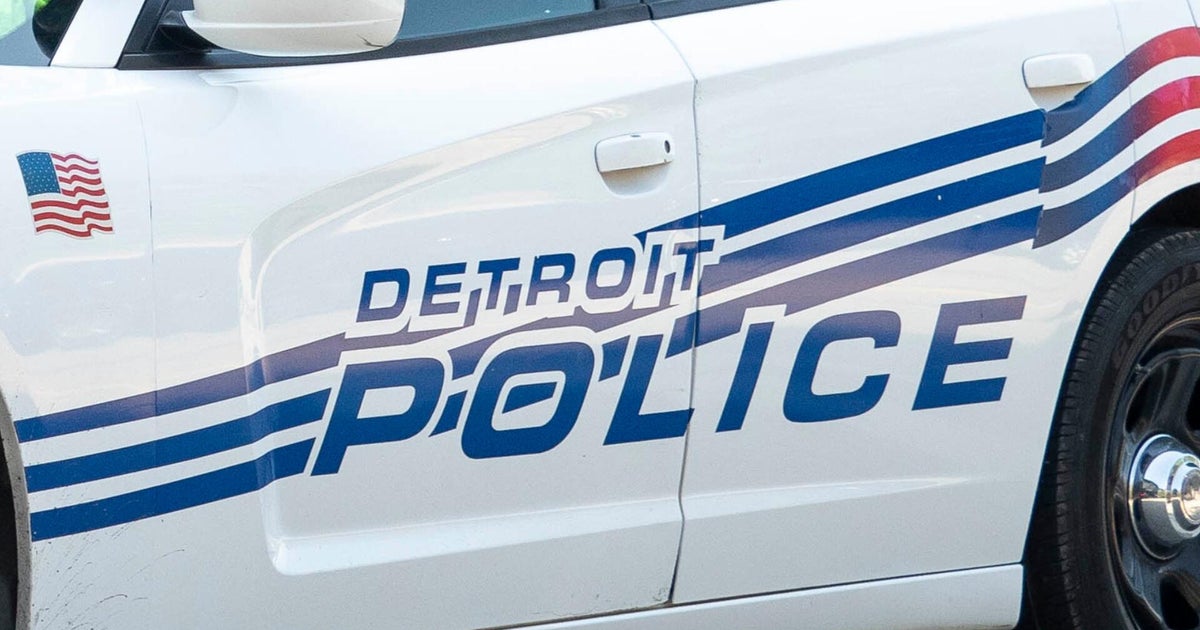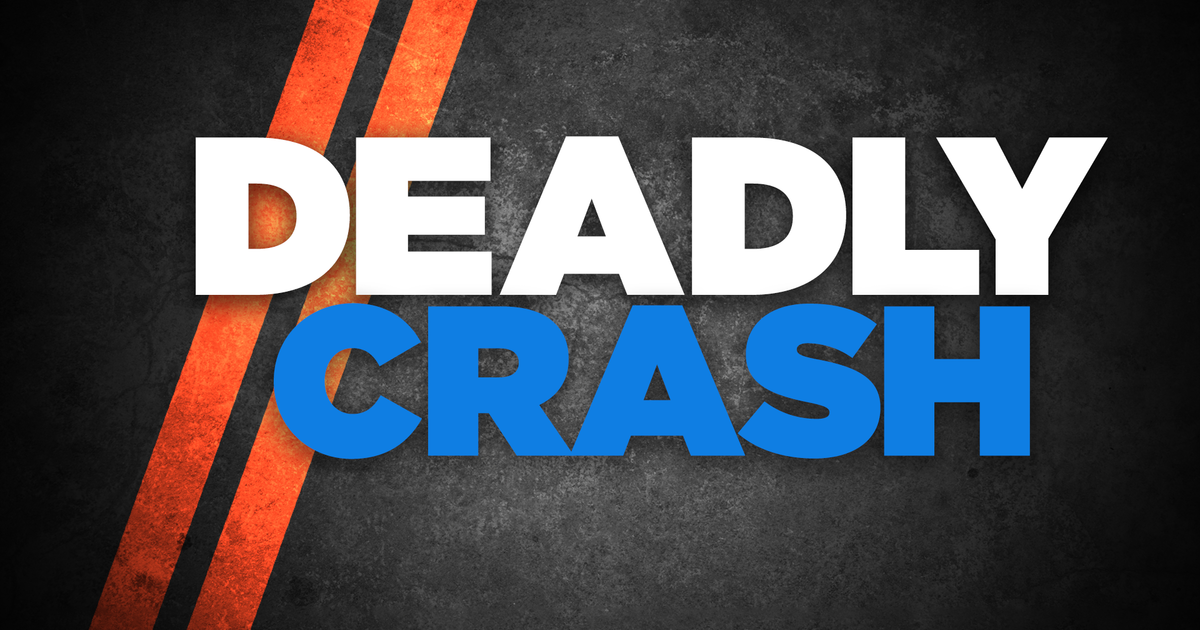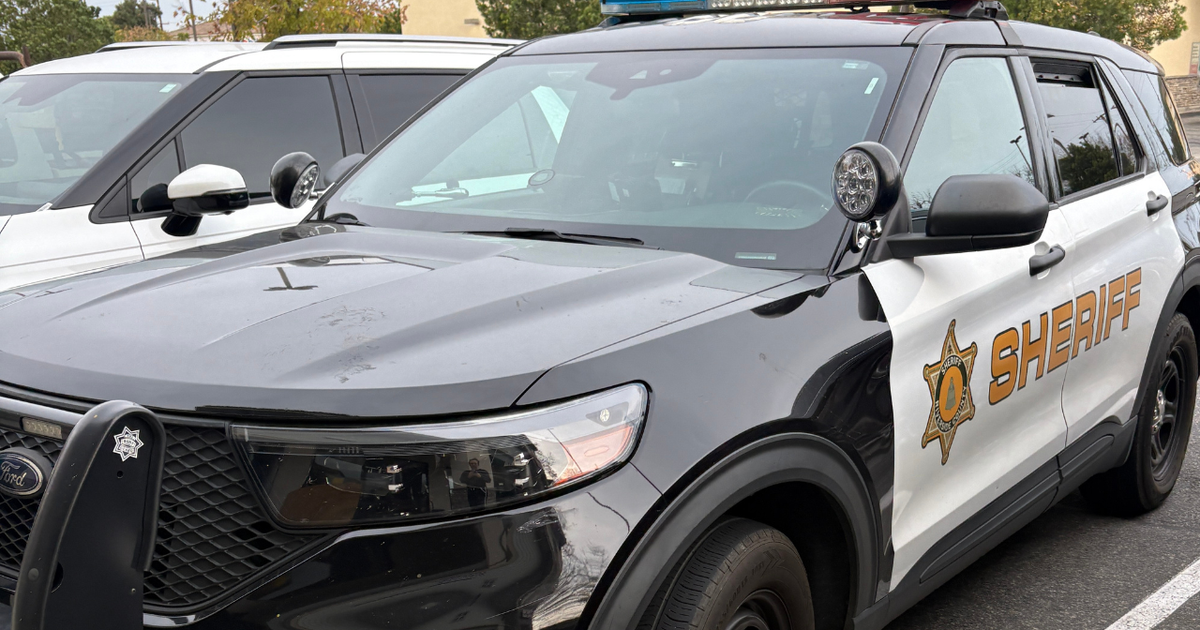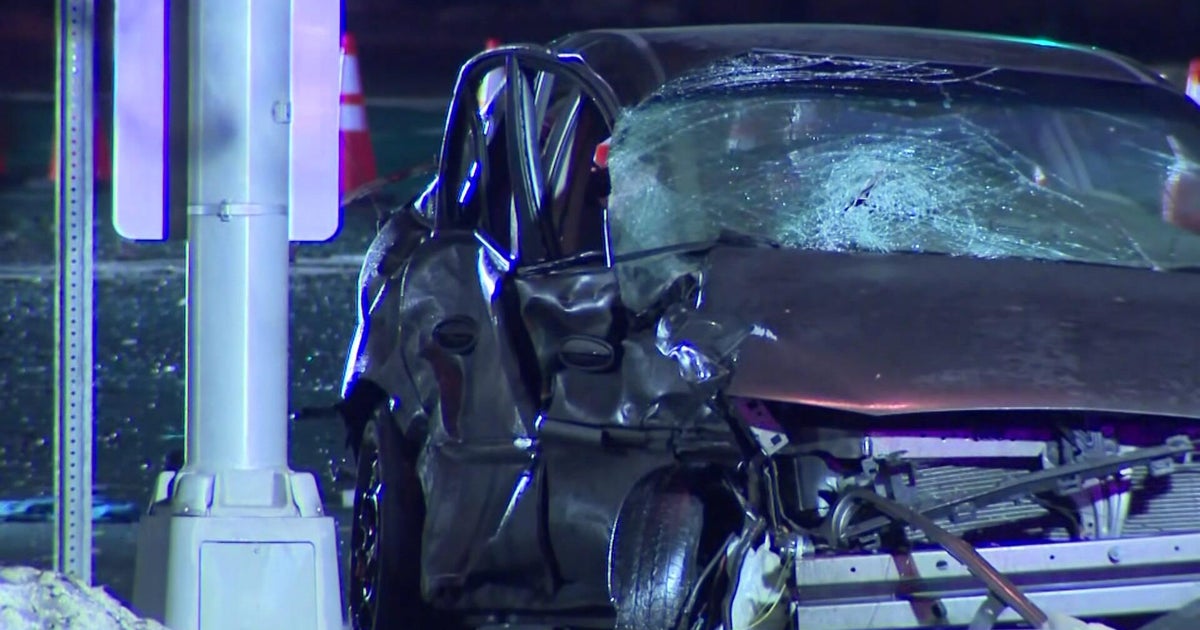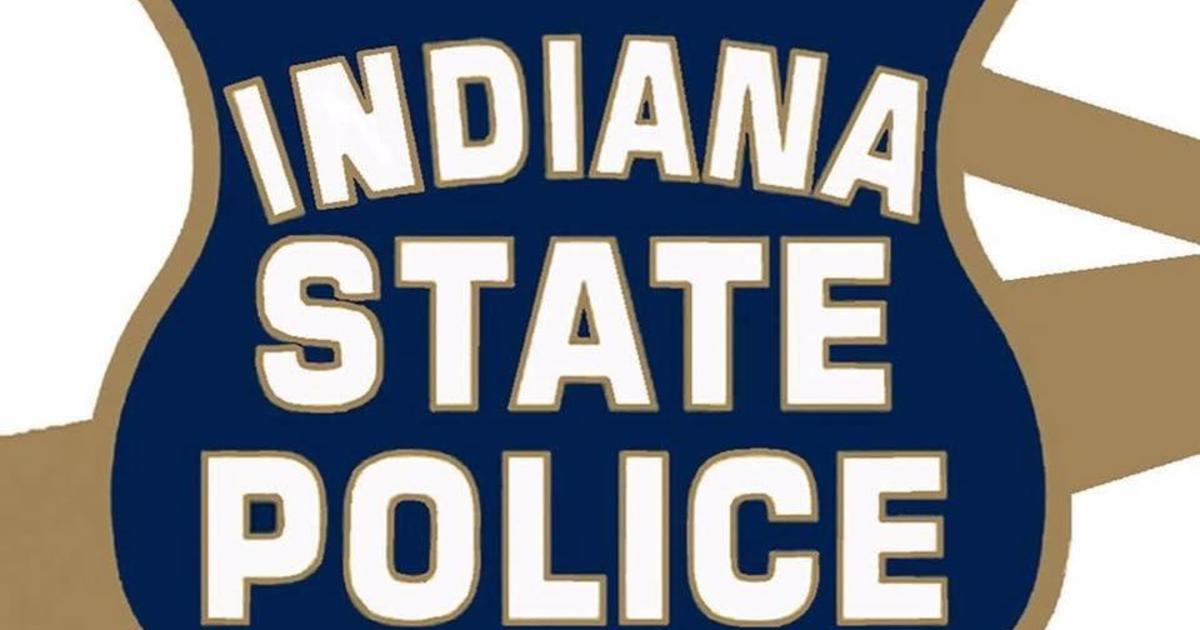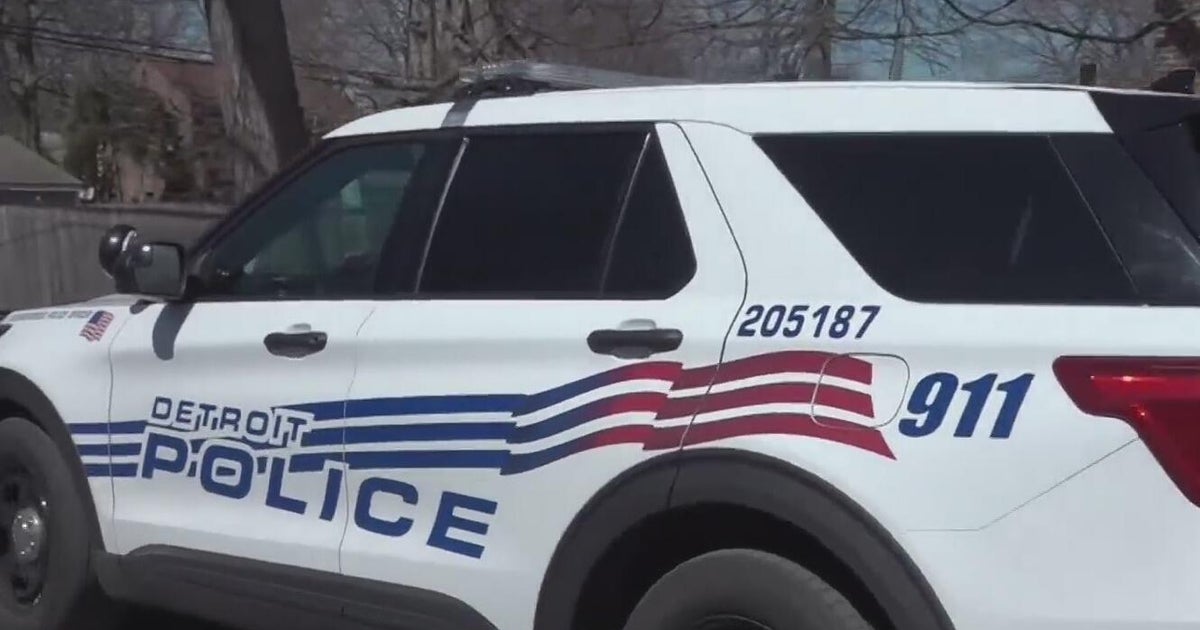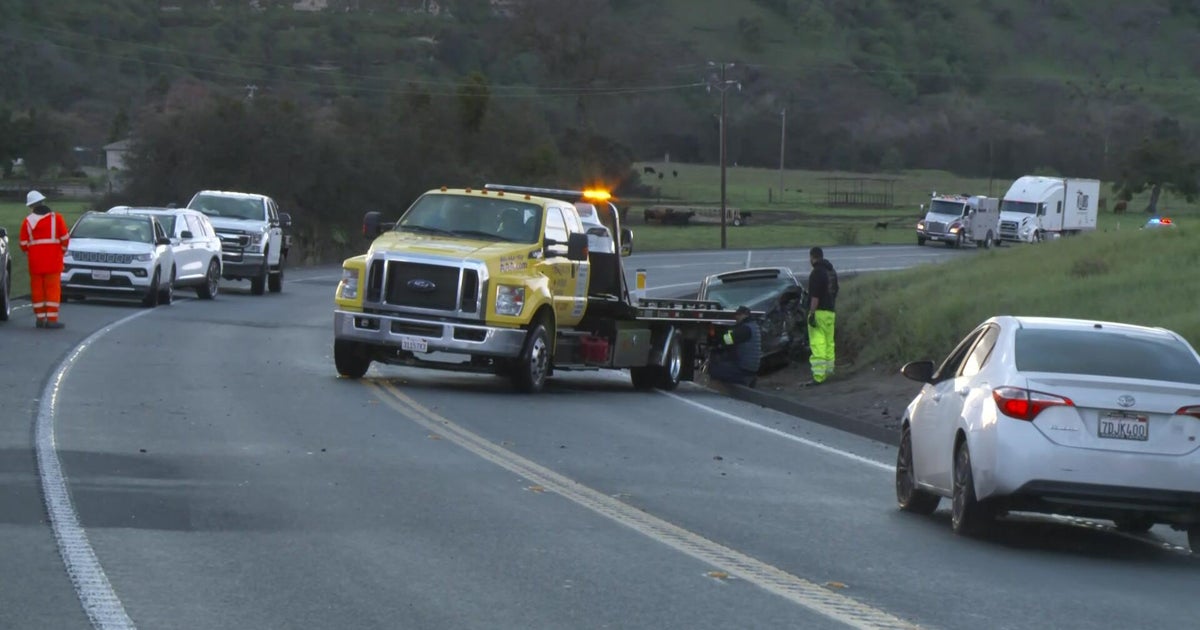NTSB 'Unhappy' Over Tesla's Statement In Fatal Mountain View Crash
MOUNTAIN VIEW (CBS SF) -- The National Transportation Safety Board is "unhappy with the release of investigative information by Tesla" after the company confirmed that the Model X involved in a deadly crash in Mountain View last month did in fact have automated driving activated, a NTSB spokesman said.
A vehicle using the semi-autonomous system crashed into a concrete lane divider in California last month, killing the driver.
NTSB spokesman Chris O'Neil said that while Tesla has been "extremely cooperative" in assisting with the vehicle data aspect of investigations involving their vehicles in the past, the NTSB expects parties involved in their investigations to inform them of releases before making information public.
The Tesla team posted in a blog post on Friday that in the moments before the collision, which happened on U.S. Highway 101 at 9:27 a.m. on March 23, Tesla's Autopilot system was engaged with adaptive cruise control follow-distance set to minimum.
"The driver had received several visual and one audible hands-on warning earlier in the drive and the driver's hands were not detected on the wheel for six seconds prior to the collision," the company said in their post. "The driver had about five seconds and 150 meters of unobstructed view of the concrete divider with the crushed crash attenuator, but the vehicle logs show that no action was taken."
Tesla had previously stated that the crash was made worse, fatally killing driver 38-year-old Walter "Wei" Huang of San Mateo, because the highway safety barrier designed to reduce the impact of hitting a concrete wall had previously been struck and was not repaired.
Tesla stood by their Autopilot feature in the blog post, saying that Autopilot still reduces automotive deaths.
"No one knows about the accidents that didn't happen, only the ones that did," the company said. "The consequences of the public not using Autopilot, because of an inaccurate belief that it is less safe, would be extremely severe."
Huang's family claims he had complained to the company about the car veering toward the freeway barrier in the past while on autopilot mode.
Tesla said they don't have records of that complaint and insisted Huang only brought up issues with the navigation system.
Tech analysts say it could indicate bigger problems within the company.
"Their credit has just been downgraded by Moody, their stock prices are falling, so all of these things are combining to give Tesla a real black eye right now," explained Russ Hancock with Joint Venture Silicon Valley.
Another issue: Tesla is recalling 123,000 Model S sedans made before April 2016 for potential problems with the power steering bolts.
"I actually don't think it's that big of a deal," said Hancock. "What is a big deal is this comes on the heels of so many other things that Tesla has been facing."
On Monday, Tesla's stock price dropped to the lowest it's been in almost a year.
Due to popular request of information on the last collision at the location, the California Highway Patrol's Redwood City-area office wrote on Twitter on Wednesday that the prior recorded crash was on March 12 around 10:30 p.m.
The NTSB spokesman said that the agency will work to determine the probable cause of the crash and provide an update in a preliminary report, which generally goes out within a few weeks of the completion of their field work.
"The uncoordinated release of investigative information can affect how other parties work with us in the future so we take each unauthorized release seriously," O'Neil said. "However, this release will not hinder our investigation."
© Copyright 2018 CBS Broadcasting Inc. All Rights Reserved. This material may not be published, broadcast, rewritten, or redistributed. Bay City News Service contributed to this report.
